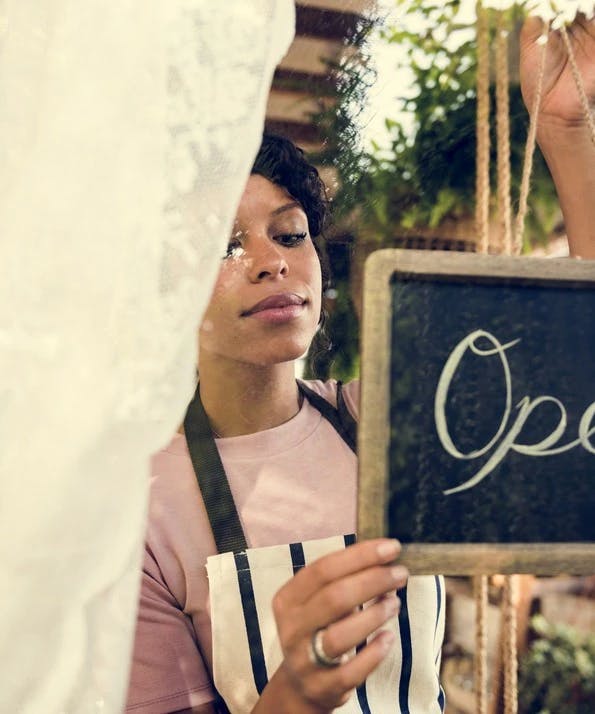Caring About The Economic Consequences Of The Shutdowns Doesn't Make You A Terrible Person
It’s hard to believe how long we’ve been social-distancing and quarantining. All around the world, people are working remotely, homeschooling their children…and losing their jobs. Suicide rates and domestic abuse cases have skyrocketed. Yet, when people question how long the quarantine will last, they’re told that they don’t care about human lives.

“Flattening the Curve”
The initial goal when America decided to close its economy was to “flatten the curve.” The idea was, if fewer people were interacting with each other, then the infection rate would be slower. The fear was that hospitals would be overwhelmed if there were a sudden spike of people contracting COVID-19. Here’s the thing: the same number of people would contract Coronavirus – it would just happen more slowly and over time so that everyone would have the ability to get treatment.
Here’s the thing: the same number of people would contract Coronavirus – it would just happen more slowly and over time.
Then, all of a sudden, the conversation changed. The goalposts moved. The question wasn’t, “Did we flatten the curve?” Now, it was, “Even if we flattened the curve, will anyone die if we leave quarantine?” Of course, we all want to save lives. We all have people we are concerned about and want to stay safe. But the only way to actually prevent deaths directly caused by Coronavirus, rather than slow them down, is to stay in lockdown until a vaccine has been found — which could take approximately two years. So the ultimate question is: At what cost do we keep the economy shut down?
The Huge Problems with an Economic Shutdown
When people ask when the economy will reopen and people can return to work, they are met with horror. “Don’t you care about human lives?” “Are you so selfish you would put people at risk?” The problem with this view is that it only looks at the deaths directly resulting from Coronavirus.
Since we’ve all been quarantined at home, more than 30 million Americans have filed for unemployment. Domestic abuse rates have risen. (In Plattsburgh, NY, they’ve risen by 50%, and in Alton, TX, domestic abuse rates have increased by 116%.) And suicide rates will most likely rise. (According to the National Bureau of Economic Research, every 1% increase in the unemployment rate causes a 3.3% increase in deaths by drug-overdose and 0.99% hike in suicides).
43% of small businesses believe they have less than six months until a permanent shutdown is unavoidable.
In a special report on the U.S. Chamber of Commerce’s website from April 3, 2020, it says, “With high levels of concern about COVID-19 reported in every sector and region of the country, one in four small businesses (24%) report having already temporarily shut down. Among those who haven’t shut down yet, 40% report it is likely they will shut temporarily within the next two weeks. Forty-three percent believe they have less than six months until a permanent shutdown is unavoidable.”
There Are Two Sides to This Story
Good people who have spent their whole lives building small businesses are going to lose everything during this shutdown. Their lives may never recover. They will have to live with the knowledge that they did everything right, yet they still failed.
There are so many repercussions of this economic shutdown — we have to consider if and how and when the country and its citizens will recover.
We all want to save as many lives as possible. But there are so many repercussions of this economic shutdown that we have to consider if and how and when the country and its citizens will recover. People are losing their life savings. People can’t get the help they need in quarantine.
So when people ask if the economy should stay shut down, they are looking at a whole host of other statistics besides the deaths directly caused by Coronavirus. There are no perfect solutions in all of this; perhaps the slow reopening of the economy with social-distancing measures in place is the best way to proceed. But we can’t ignore the fact that there are real, true repercussions to all of this that will affect us all, now and in the future.
Closing Thoughts
As someone who sees both sides of the argument, calling people inhumane for even questioning our next steps bothers me. It stops the conversation before it gets started, preventing us from figuring out solutions. This can’t last forever – we all agree. But it’s time for us to look at the state of the world from both sides and then decide what we have to do.
Abby Roth is the creator of Classically Abby, a commentary, opera, beauty, and lifestyle brand dedicated to looking at the world from a classic perspective. Abby is the first #ConservativeInfluencer and is an opera singer with three degrees in operatic performance from USC and Manhattan School of Music. You can find her website at www.classicallyabby.com and follow her on YouTube, Instagram, Twitter, and Pinterest at @ClassicallyAbby.